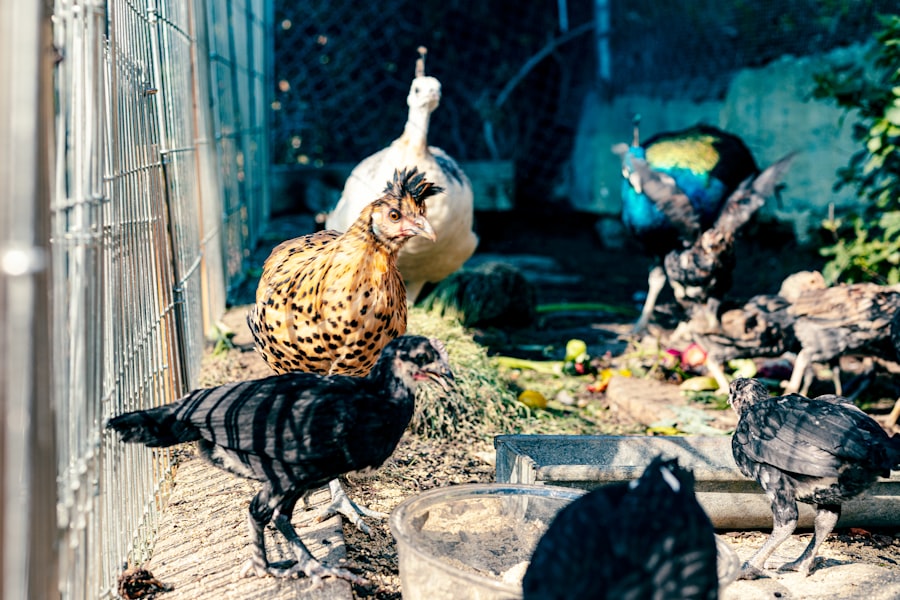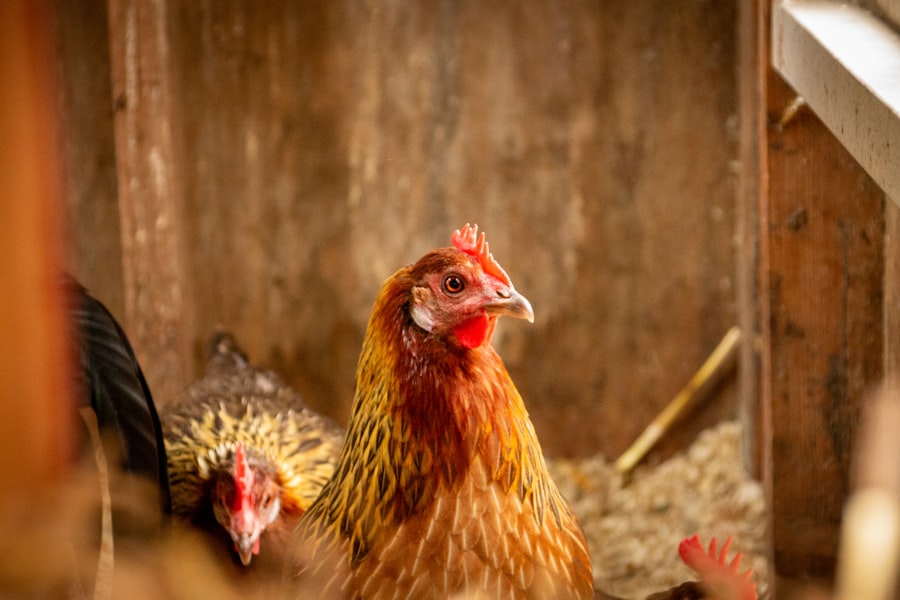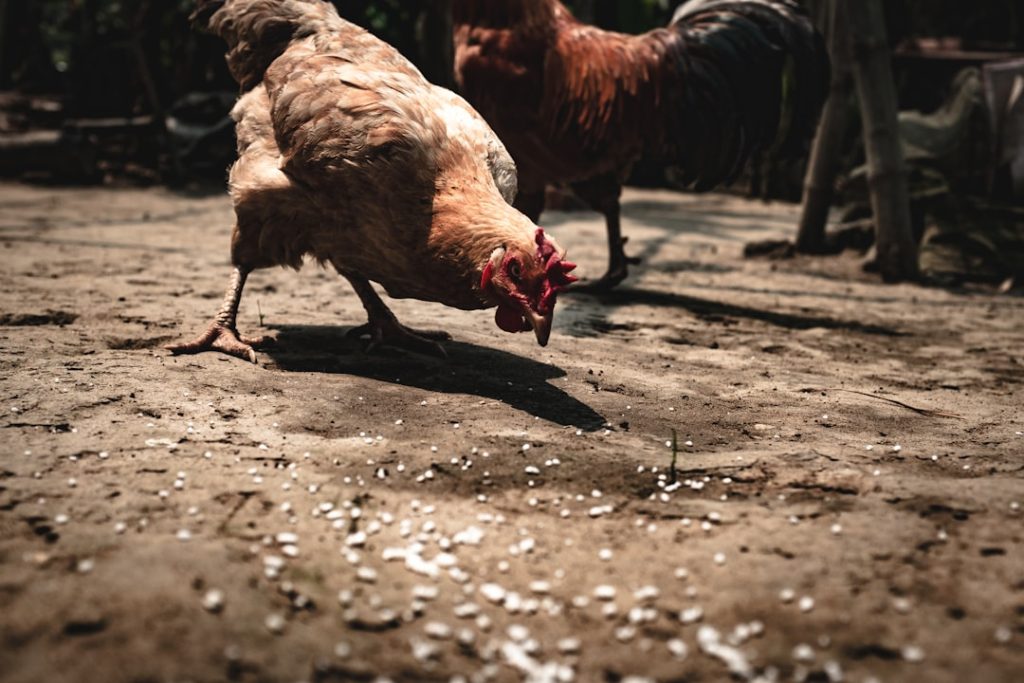Establishing a chicken coop and initiating a small-scale poultry operation involves several initial expenses. The primary cost is the chicken coop itself, which can range from a few hundred to several thousand dollars, depending on size and quality. Essential equipment such as feeders, waterers, and nesting boxes are also necessary investments for maintaining the health and productivity of the flock.
The purchase of chickens is another significant expense. Costs vary based on the breed, age, and quantity of birds acquired. Chicks are generally less expensive than pullets (young hens), but require more care and time before they begin laying eggs.
Security measures, such as fencing, are crucial to protect chickens from predators. This can represent an additional cost in the initial setup. The total initial investment for starting a small flock of chickens typically ranges from several hundred to a few thousand dollars.
This variation depends on factors such as flock size, equipment quality, and the specific needs of the chosen breed. While the upfront costs can be substantial, many find that the long-term benefits of fresh eggs and poultry outweigh the initial expenses.
Table of Contents
- 1 Housing and Coop Expenses
- 2 Feed and Nutrition Costs
- 3 Veterinary Care and Health Expenses
- 4 Egg Production and Maintenance Costs
- 5 Predation and Security Costs
- 6 Miscellaneous Expenses
- 7 FAQs
- 7.1 What are the initial costs of keeping chickens in New Zealand?
- 7.2 What are the ongoing costs of keeping chickens in New Zealand?
- 7.3 Are there any legal requirements or regulations for keeping chickens in New Zealand?
- 7.4 What are some ways to reduce the cost of keeping chickens in New Zealand?
- 7.5 What are the potential benefits of keeping chickens in New Zealand?
Key Takeaways
- Initial setup costs for raising chickens include purchasing a coop, feeders, waterers, and heat lamps.
- Housing and coop expenses involve regular maintenance, cleaning, and potential repairs to the coop and surrounding area.
- Feed and nutrition costs are ongoing and can vary based on the type and quality of feed provided to the chickens.
- Veterinary care and health expenses may include vaccinations, medications, and potential emergency care for sick or injured chickens.
- Egg production and maintenance costs encompass the expenses related to collecting, cleaning, and storing eggs, as well as any additional equipment needed for egg production.
Housing and Coop Expenses
Bedding and Cleaning Expenses
One of the most significant ongoing expenses is the cost of bedding for the coop. This can include materials such as straw, wood shavings, or hay, which need to be replaced regularly to maintain a clean and healthy living environment for your chickens.
Climate Control Expenses
Additionally, you may need to invest in heating or cooling equipment for the coop, depending on the climate in your area. This is crucial to ensure your chickens remain comfortable and healthy throughout the year.
Maintenance and Repair Expenses
Another ongoing expense to consider is the cost of maintaining and repairing the coop itself. Over time, wear and tear can take a toll on the coop, and you may need to invest in repairs or upgrades to keep it in good condition. This can include replacing rotted wood, fixing damaged wire mesh, or reinforcing the structure to keep it secure from predators.
Ongoing housing and coop expenses can add up over time, but they are essential for maintaining a safe and comfortable living environment for your flock.
Feed and Nutrition Costs

Feed and nutrition costs are another significant expense to consider when raising a small flock of chickens. The cost of chicken feed can vary depending on the type and quality of feed you choose to purchase. Additionally, you may need to invest in supplements or treats for your chickens to ensure they are getting all the nutrients they need to stay healthy and productive.
It’s essential to provide a balanced diet for your flock to support their overall health and egg production. In addition to feed costs, you may also need to invest in feeders and waterers to ensure your chickens have access to food and water at all times. These items need to be kept clean and in good condition to prevent contamination and ensure the health of your flock.
Overall, feed and nutrition costs are an ongoing expense that is crucial for maintaining the health and productivity of your chickens. Feed and nutrition costs are an ongoing expense that is crucial for maintaining the health and productivity of your flock. The cost of chicken feed can vary depending on the type and quality of feed you choose to purchase.
Additionally, you may need to invest in supplements or treats for your chickens to ensure they are getting all the nutrients they need to stay healthy and productive. It’s essential to provide a balanced diet for your flock to support their overall health and egg production. In addition to feed costs, you may also need to invest in feeders and waterers to ensure your chickens have access to food and water at all times.
These items need to be kept clean and in good condition to prevent contamination and ensure the health of your flock.
Veterinary Care and Health Expenses
Just like any other pet or livestock animal, chickens require veterinary care and health expenses. This can include regular check-ups, vaccinations, and treatments for common ailments such as parasites or respiratory infections. Additionally, you may need to invest in medications or supplements to support the overall health of your flock.
It’s essential to have a good relationship with a poultry veterinarian who can provide guidance on preventative care and treatment options for your chickens. In addition to veterinary care, you may also need to invest in first aid supplies for your flock. This can include items such as wound care products, vitamins, and electrolytes to support sick or injured chickens.
Overall, veterinary care and health expenses are an ongoing cost that is essential for maintaining the well-being of your flock. Chickens require veterinary care and health expenses just like any other pet or livestock animal. This can include regular check-ups, vaccinations, and treatments for common ailments such as parasites or respiratory infections.
Additionally, you may need to invest in medications or supplements to support the overall health of your flock. It’s essential to have a good relationship with a poultry veterinarian who can provide guidance on preventative care and treatment options for your chickens. In addition to veterinary care, you may also need to invest in first aid supplies for your flock.
This can include items such as wound care products, vitamins, and electrolytes to support sick or injured chickens. Overall, veterinary care and health expenses are an ongoing cost that is essential for maintaining the well-being of your flock.
Egg Production and Maintenance Costs
If you are raising chickens for egg production, there are additional costs to consider related to maintaining a productive laying flock. One significant expense is the cost of supplemental lighting if you want your hens to continue laying eggs throughout the winter months when daylight hours are shorter. Additionally, you may need to invest in nesting box liners or egg cartons for collecting and storing eggs.
Another cost related to egg production is the investment in egg cleaning supplies if you plan to sell or consume your eggs. This can include egg wash solution, brushes, and storage containers to ensure that eggs are clean and safe for consumption. Overall, egg production and maintenance costs are an ongoing expense that is essential for maintaining a productive laying flock.
If you are raising chickens for egg production, there are additional costs related to maintaining a productive laying flock. One significant expense is the cost of supplemental lighting if you want your hens to continue laying eggs throughout the winter months when daylight hours are shorter. Additionally, you may need to invest in nesting box liners or egg cartons for collecting and storing eggs.
Another cost related to egg production is the investment in egg cleaning supplies if you plan to sell or consume your eggs. This can include egg wash solution, brushes, and storage containers to ensure that eggs are clean and safe for consumption. Overall, egg production and maintenance costs are an ongoing expense that is essential for maintaining a productive laying flock.
Predation and Security Costs

Secure Fencing and Enclosures
Predation is a significant threat to backyard flocks, so investing in security measures is crucial for protecting your chickens from predators such as raccoons, foxes, or birds of prey. This can include investing in secure fencing or wire mesh around the coop and run area, as well as predator-proof latches on doors and windows.
Deterrents for Nocturnal Predators
Additionally, you may need to invest in motion-activated lights or alarms as a deterrent for nocturnal predators. These measures can help to scare off predators that are most active at night.
Locking Systems for Coop Security
Another security measure to consider is investing in a secure locking system for your coop at night when predators are most active. This can include padlocks or other secure fasteners that prevent predators from gaining access to your flock while they are roosting. Overall, predation and security costs are an essential investment for protecting your chickens from potential threats.
Miscellaneous Expenses
In addition to the above-mentioned expenses, there are various miscellaneous costs associated with raising a small flock of chickens that should be taken into consideration. This can include items such as cleaning supplies for the coop, such as brooms, shovels, and disinfectants. Additionally, you may need to invest in storage containers for feed and bedding materials to keep them dry and free from pests.
Another miscellaneous expense is investing in educational resources or workshops related to chicken care and management. This can include books, online courses, or attending local poultry shows or events where you can learn from experienced chicken keepers. Overall, miscellaneous expenses are an ongoing cost that should be budgeted for when raising a small flock of chickens.
In addition to the above-mentioned expenses, there are various miscellaneous costs associated with raising a small flock of chickens that should be taken into consideration. This can include items such as cleaning supplies for the coop, such as brooms, shovels, and disinfectants. Additionally, you may need to invest in storage containers for feed and bedding materials to keep them dry and free from pests.
Another miscellaneous expense is investing in educational resources or workshops related to chicken care and management. This can include books, online courses, or attending local poultry shows or events where you can learn from experienced chicken keepers. Overall, miscellaneous expenses are an ongoing cost that should be budgeted for when raising a small flock of chickens.
In conclusion, raising a small flock of chickens comes with various expenses that should be carefully considered when planning for this venture. From initial setup costs such as purchasing a coop and equipment to ongoing expenses related to housing, feed, veterinary care, egg production, predation prevention, and miscellaneous items – there are many factors that contribute to the overall cost of chicken keeping. However, with proper planning and budgeting, raising chickens can be a rewarding experience that provides fresh eggs, entertainment, and a connection with nature right in your own backyard.
If you’re interested in learning more about the cost of keeping chickens in New Zealand, you might also want to check out this article on what you should feed ducks. Understanding the cost of feeding and caring for ducks can provide valuable insight into the overall expenses of poultry ownership in New Zealand.
FAQs
What are the initial costs of keeping chickens in New Zealand?
The initial costs of keeping chickens in New Zealand include purchasing a chicken coop, feeders, waterers, and the chickens themselves. Additionally, there may be costs associated with setting up a secure outdoor area for the chickens to roam.
What are the ongoing costs of keeping chickens in New Zealand?
The ongoing costs of keeping chickens in New Zealand include purchasing chicken feed, bedding material, and any necessary medical care for the chickens. There may also be costs associated with replacing or repairing equipment and maintaining the chicken coop and outdoor area.
Are there any legal requirements or regulations for keeping chickens in New Zealand?
In New Zealand, there are regulations and guidelines for keeping chickens, including requirements for the housing and care of the birds. It is important to familiarize yourself with these regulations and ensure that you are in compliance with local laws.
What are some ways to reduce the cost of keeping chickens in New Zealand?
Some ways to reduce the cost of keeping chickens in New Zealand include sourcing feed and bedding materials in bulk, utilizing DIY methods for building or repairing equipment, and practicing good preventative health care for the chickens to minimize veterinary costs.
What are the potential benefits of keeping chickens in New Zealand?
Keeping chickens in New Zealand can provide a sustainable source of fresh eggs, natural pest control in the garden, and the opportunity to engage in a rewarding and educational hobby. Additionally, chickens can contribute to a more sustainable and self-sufficient lifestyle.
Meet Walter, the feathered-friend fanatic of Florida! Nestled in the sunshine state, Walter struts through life with his feathered companions, clucking his way to happiness. With a coop that’s fancier than a five-star hotel, he’s the Don Juan of the chicken world. When he’s not teaching his hens to do the cha-cha, you’ll find him in a heated debate with his prized rooster, Sir Clucks-a-Lot. Walter’s poultry passion is no yolk; he’s the sunny-side-up guy you never knew you needed in your flock of friends!







